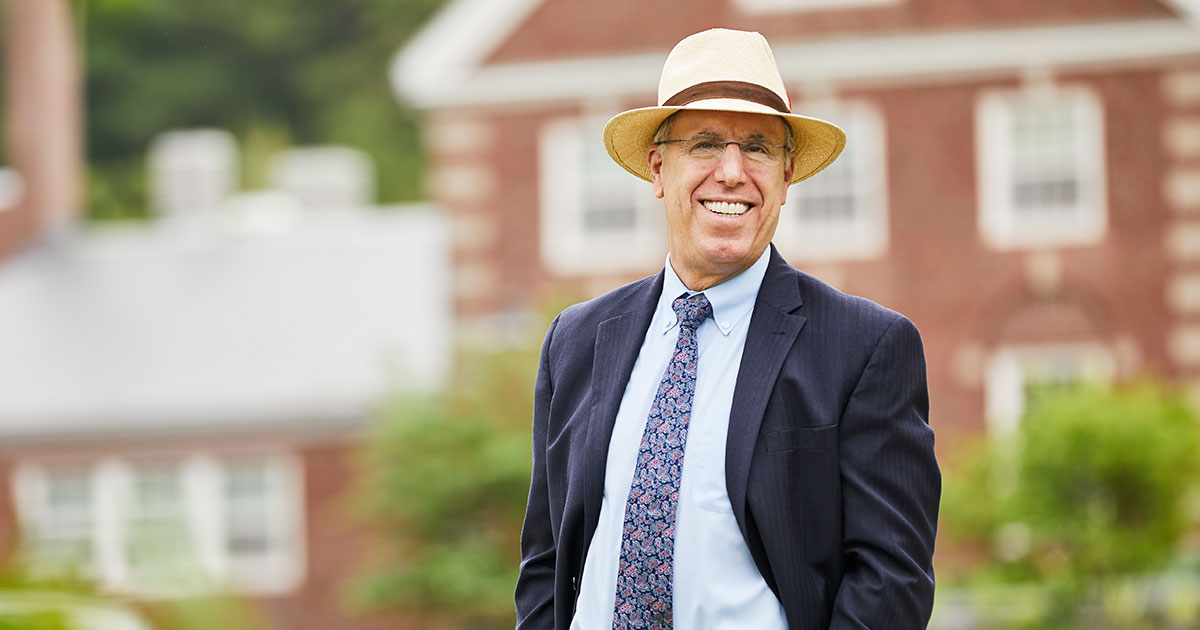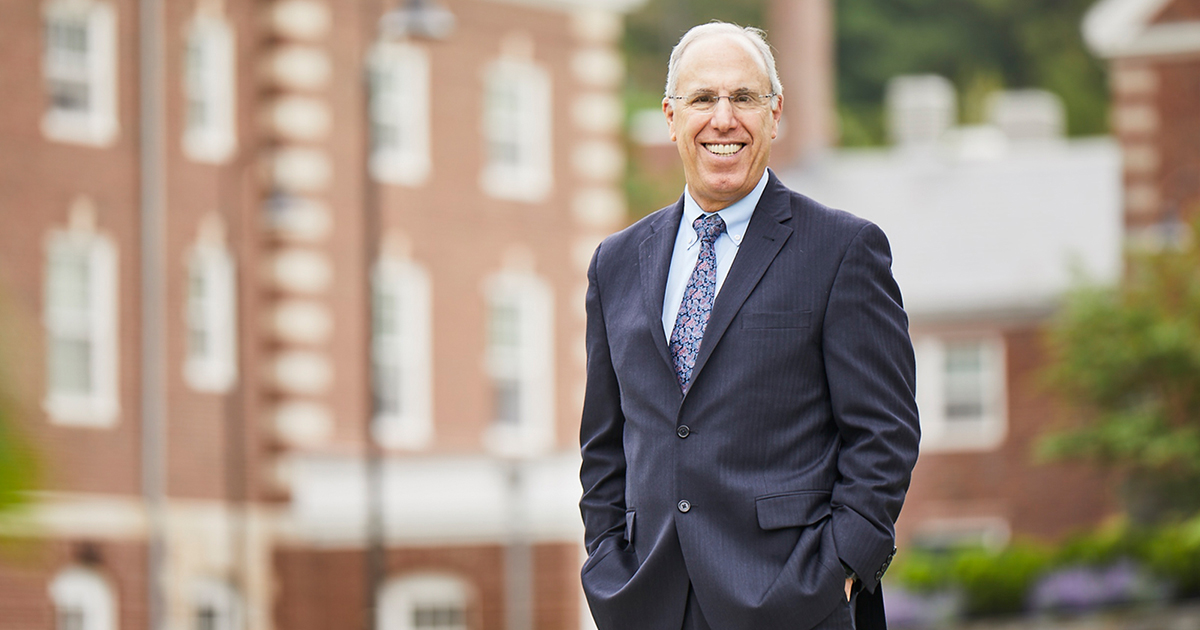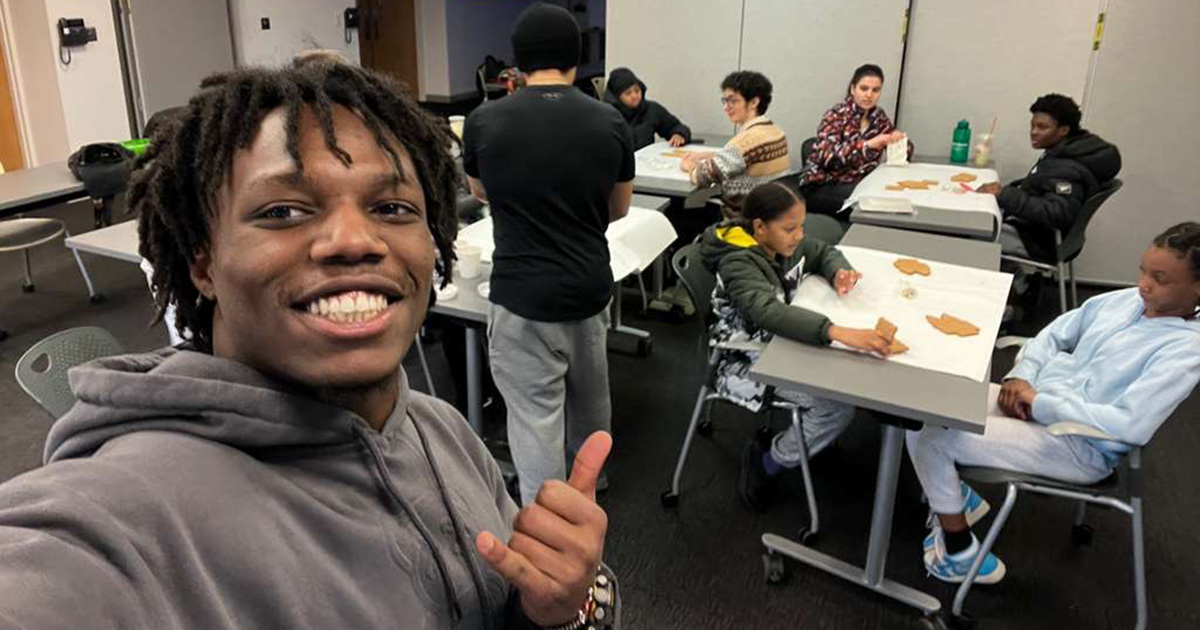5 Ways to Support an Entrepreneurial Ecosystem at Your College or University

The pace of change in the world and workplace is accelerating, and every industry, including higher education, is being disrupted. Disruption and change create new opportunities for entrepreneurship. Colleges and universities that cultivate a multidimensional entrepreneurial ecosystem can position themselves to thrive in a challenging and changing marketplace.
Today, the world needs entrepreneurship more than ever. Entrepreneurial leaders are nimble, opportunity-driven, innovative problem-solvers, and growth-oriented. They possess qualities and skills that make them particularly valuable as the nature of work rapidly and constantly evolves.
At Babson College, where I serve as president, entrepreneurship is central to our mission and embedded in our culture. Our students, faculty, staff and alumni learn an entrepreneurial mindset. Our unique ecosystem extends to 120 countries around the world through a network of local and global partnerships, academic and co-curricular opportunities, and nearly 42,000 alumni and friends.
This entrepreneurial ecosystem enhances the student experience, fosters strong industry and alumni connections, and makes Babson a great place to teach and work. It is also a key differentiator at a time when traditional higher education models are in jeopardy. Our graduates get and create jobs.
The tumultuous state of higher education is front-page news as colleges and universities close, consolidate, and grapple with foreboding market dynamics. Stagnant high school graduation rates in the United States, international tensions, diminished government spending and support, increased regulatory and technology costs, and squeezed personal incomes—coupled with a fundamental questioning of the value of a college education —have brought higher education to the precipice. Since 2016, more than 100 colleges and universities in the United States have closed.
As colleges and universities prepare for the future, developing an entrepreneurial ecosystem can improve the odds of surviving and succeeding in the age of disruption. Here are a few key lessons learned in establishing an effective entrepreneurial ecosystem:
Experiment
Try, fail quickly, learn, and adjust. The iterative, action-oriented nature of entrepreneurship education teaches that failure is neither permanent nor defining. Experiment with your curriculum; introduce new experiential learning opportunities; engage with industry in ways that excite them; explore new connection points with alumni through continuous learning opportunities, ambassador programs or student engagement like recruiting and coaching. Experimentation is a fundamental component of the entrepreneurial process and often produces the most fruitful and unexpected outcomes. It is also a pathway for leaders to emerge. Trustees and faculty who understand industry dynamics will support you.
Support Entrepreneurial Leaders
As organizations work to meet the needs of students and transform their business models, they must embrace change and innovate with an eye toward the future. Entrepreneurial thinking and leadership is essential at all levels. Promote a culture of inquisitiveness, experimentation, and critical thinking. Normalize transformational thinking by rewarding experimentation and supporting failure. Deploy those ideas—and elevate those leaders and thinkers—with actionable strategies and appropriate resources.
Collaborate
Entrepreneurship is inherently collaborative. Internally, it produces efficiencies, builds relationships and strengthens the learning environment for faculty and students. Externally, by identifying and pursuing strategic partnerships with individuals and institutions—whether academic, industry, non-profit, community or government—colleges and universities can create a multidimensional education ecosystem that supports a constellation of enhanced educational offerings at lower costs. Select partners with complementary strengths, programs or services, and common overarching values and core principles. And remember that diversity among partnering organizations enhances the overall value of the collaboration.
Build Lifelong Connections
Collaboration and leadership within an ecosystem combine to create powerful lifelong connections that will sustain institutions, stakeholders and society. The educational experience is no longer linear. It is not limited to a four-year experience with a defined beginning and end. Rather, students seek a long-term, ongoing relationship with education, one with many connection points over the course of their lives. A strong entrepreneurial ecosystem incorporates engagement and learning opportunities that extend beyond classroom and campus. Delivery can be in both degree and non-degree modules.
Be Market Facing
The entrepreneurial mindset is about opportunity recognition. Despite the serious headwinds that colleges and universities are facing, ultimately there remains a desire and an imperative for learning and knowledge. Constant change means there is a need for new knowledge all the time. That’s expanding market demand. Develop a keen understanding of what students and employers are seeking and explore ways to change the array of resources you have or can get to meet that demand. Your ecosystem partners will be important sources of data.
Entrepreneurial Thought & Action® is the central tenet of the Babson academic experience. It is a way of thinking, reasoning, and acting that is opportunity obsessed, holistic in nature, and leadership balanced for the purpose of creating and capturing value. The ecosystem factors outlined represent a blend of design thinking and mechanics, ideation and operations. They represent thought and action.
By putting in place the conditions to support a robust entrepreneurial ecosystem, colleges and universities can create value for their stakeholders and lay the groundwork for ongoing innovation and success.
This story originally appeared in the Chronicle of Higher Education.
Posted in Insights





